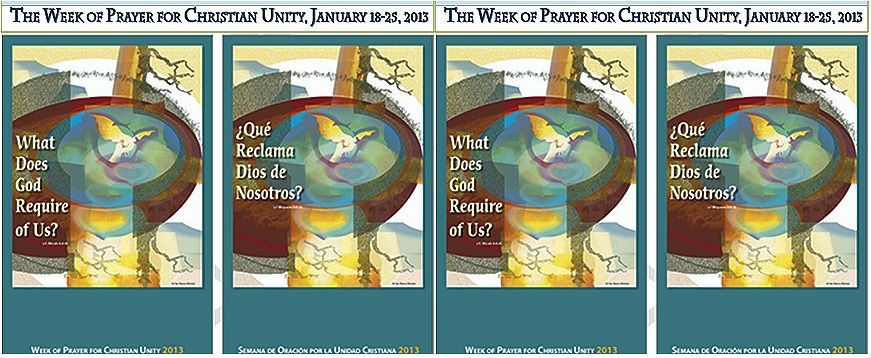
 Living ecumenism will lead
Living ecumenism will lead
Christians to unity
Translated from the Italian service of

January 18, 2014
The Italian report was translated from the original German in which the interview was conducted.
Ecumenism practised in daily life will lead Christians towards eventual communion and visible unity, says Cardinal Kurt Koch, president of the Pontifical Council for Promoting Christian Unity, who spoke to Vatican Radio at the start of the annual Week of Prayer for Christian Unity which takes place January 18-25.
This year's theme is: "What does God require of us?" taken from the Book of the prophet Micah.
The cardinal spoke to Mario Galgano:
CARDINAL KOCH: I believe that in the last fifty years, many things have happened. So many dialogs, so much rapprochement. I think especially of the great event that took place shortly before the end of the Second Vatican Council - when the Catholic Church and the Orthodox Churches both lifted their reciprocal excommunications
[which happened during the Great Schism of 1054, when the Eastern Churches broke off from Rome] and consigned that to oblivion.
I also think of the momentous 1999 Joint Declaration of the World Lutheran Federation and the Pontifical Council for Christian Unity on the doctrine of justification, one of the main points that divided us during the Reformation...
Alongside this, meanwhile, a worldwide network of ecumenical friendship has developed, which I think is even more important, because it won't be ecumenical 'documents' that will lead us to eventual unity, but communion in life.
And yet, despite all that has been done, we must admit that the goal of ecumenism [i.e., the visible unity of all Christians] is far from achieved: We have not found unity, and there is much more work to be done to find it...
About the dialog with the Orthodox Churches, one of the main difficulties appears to be the internal divisions among them...
There already exists a joint theological commission in which the Catholic Church and all the Orthodox Churches except Bulgaria are represented.
[Actually, this joint commission has reached the most advanced stage of any ecumenical effort so far, because they have arrived at starting to discuss how to deal with the primacy of the Pope in Rome in a unified Church. That's not to say it will be easy sailing from here on! A millennium of separation from Rome has only entrenched the Orthodox Churches in their autonomy of each other, and they may not take kindly to being 'under Rome' in any way, even if Rome has a record in modern times of being very solicitous that the Eastern Churches loyal to the Pope retain their local autonomies.]
In fact, there are some tensions among some of the Orthodox Churches. That is why I think that an eventual pan-Orthodox Synod is most important. I have been following this development with great sympathy because I am convinced that if they hold such a pan-Orthodox Synod, it will be pf great help to the ecumenical dialog.
[But will the Patriarchate of Moscow agree to take part in such a Synod, if it cannot get the majority of the autonomous Churches to support it in its open rivalry with the Ecumenical Patriarchate of Constantinople? Moscow has the great advantage of numbers (the 110 million Russian Orthodox faithful make up almost 40% of the total Orthodox population, vs the measly 73,000 faithful in Patriarch Bartholomew's native Turkey), substantial state support (in Turkey, the Orthodox Church is still fighting to be recognized as a legal entity), and great material resources and organizatipn. And yet the Ecumenical Patriarchate is primus inter pares in the Orthodox world by history. From all indications, Moscow is determined to establish its undisputed hegemony over Orthodox Christianity in its desire to assert itself as a counterweight to Rome. IMHO, I see this naked geopolitical ambition as the greatest obstacle to any further rapprochement between Orthodox Christianity and Rome.]
What is the role of the Year of Faith in this Week of Prayer for christian Unity?
I think it has a central role during the whole year, because the foundational element of ecumenism is the faith. Ecumenism is not just diplomatic and political - it is about faith. What unites all Christians at present is Baptism, which is validly recognized by all the churches, and the Apostles Creed. In this sense, the Year of Faith is a great challenge for all Christians to find the roots of ecumenism in the Christian faith we all share.
